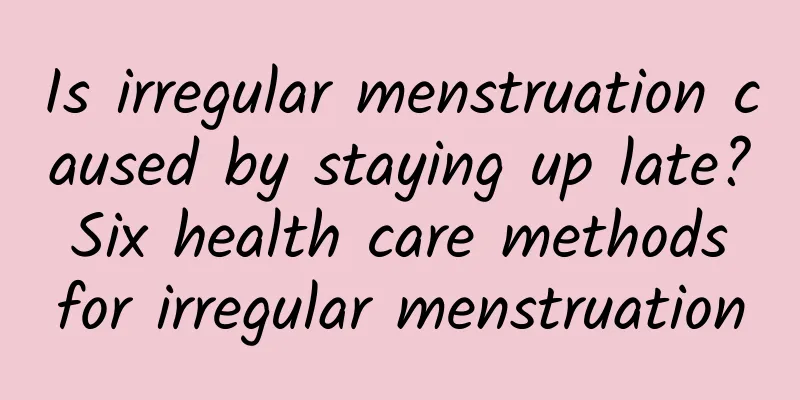Obesity, cramps, back pain… 8 signs of vitamin D deficiency

|
Are you missing D? If you suffer from particularly sore muscles, cramps in the middle of the night, unexplained back pain, muscle weakness, poor intestinal function, laziness and depression, or even obesity, you may want to check your blood vitamin D levels to see if they are insufficient. How do we get vitamin D from food? And how much should be supplemented? Let the doctor help you unlock the secrets of vitamin D! Nearly 60% of adults are vitamin D deficient According to the World Health Organization, approximately 1 billion people worldwide are vitamin D deficient. The National Nutrition Survey conducted by the Ministry of Health and Welfare of Taiwan from 2005 to 2008 also found that nearly 60% of adults were deficient in vitamin D, 70% of whom were women. There are many reasons for vitamin D deficiency, not just excessive sun protection. Air pollution and the effects of PM2.5, aging, obesity, dull skin, disease, medication, etc. can all affect the concentration of vitamin D in the body. Vitamin D deficiency may cause disease Why is Vitamin D important to the human body? The human body has more than 30,000 genes, and vitamin D can affect the expression of more than 3,000 genes. In order for vitamin D to work, it must first bind to vitamin D receptors. Almost every cell in the human body has vitamin D receptors, so vitamin D can act on almost every cell in the human body, and then affect every organ, including bones, heart, brain, liver, kidneys, lungs, stomach, intestines, etc. According to many studies in recent years, vitamin D deficiency is associated with many diseases, such as muscle weakness, cancer, immune system-related diseases, cardiovascular disease, diabetes, and neurological effects such as schizophrenia, depression, and Alzheimer's disease. 8 Signs of Vitamin D Deficiency Dr. Jiang Kunjun, a doctor of medicine, stated in his new book "One D a Day: Vitamin D Helps You Take Care of Your Health" that if you have the following 8 symptoms, it means you may be deficient in vitamin D: 1. Dull skin tone, 2. Insomnia, 3. Depression, 4. Night sweats, 5. Obesity, 6. Fatigue and pain, 7. Poor intestinal function, and 8. Cramps in the middle of the night. Why is obesity also related to vitamin D deficiency? Because vitamin D is fat-soluble, it is easily stored in fat and is not easily used by the human body. Therefore, once you become obese, the concentration of vitamin D in your blood will be diluted. In addition, poor intestinal function will also affect the absorption of nutrients, which will naturally affect the absorption of vitamin D. Therefore, the concentration of vitamin D in the blood is relatively insufficient. Vitamin D deficiency may lead to chronic pain In addition, most people often suffer from chronic pain. According to a 2015 survey by the Taiwan Society of Pain Medicine, there are actually about 700,000 people in Taiwan suffering from chronic pain. This problem is very common. Many patients prefer to use painkillers containing anti-inflammatory ingredients to relieve pain because they can relieve pain immediately. However, if you take a lot of painkillers but still can't relieve the pain, you should suspect that the pain is not that simple and may be caused by inflammation in other parts of the body. Moderate supplementation of vitamin D can help the body fight inflammation. A 2017 study followed people with chronic low back pain (average duration of more than 3 months) who took vitamin D3 supplements. When the patients were first tested, the average value of vitamin D in their blood was extremely low. However, after continuous supplementation of vitamin D3 for 8 weeks, the vitamin D concentration in their blood increased significantly, and nearly 60% of the patients even reached normal values. Moreover, everyone's pain index and functional index improved after supplementing with vitamin D3. Take Vitamin D every day to keep diseases away! Vitamin D actually functions like a hormone and is a hormone with multiple functions. The difference between the two is that vitamins participate in biological reactions in the body and assist in the functioning of the body; hormones are more active and can directly enter cells, reach the cell nucleus, affect cell activity, and transmit messages to cells to change the ongoing functions of cells. The vitamin D that the human body needs is D2 and D3. Vitamin D2 is made from natural plants, while D3 is produced naturally by the skin after exposure to sunlight. These studies have shown that vitamin D deficiency is a risk factor for chronic pain. In fact, almost every cell has a receptor for vitamin D, and it is involved in many functions of the body, especially the function of inhibiting inflammation. If the concentration of vitamin D in the blood is insufficient, it will be unable to suppress inflammation in the body. Once the body begins to become inflamed, a variety of diseases will arise in the long run. Proper Vitamin D Supplementation 1. Get vitamin D from food: You can get vitamin D from fungus, shiitake mushrooms, egg yolks, liver, salmon, tuna, sardines, and milk or cereals fortified with vitamin D. 2. Sunbathing: When the ultraviolet rays in the sun shine on the human skin, the skin will synthesize vitamin D by itself. The wavelength of sunlight converted into vitamin D is between 290nm and 315nm, and it is only effective when exposed to the sun between AM11-PM1:00. According to recent studies, if you want to achieve anti-cancer concentrations, sunbathing alone is not enough, because the concentration of vitamin D in the body cannot be increased after reaching a certain level, so more sunbathing is useless, and you still have to rely on oral supplementation of "inactive vitamin D3" in moderation. 3. Take vitamin D supplements: If the body cannot synthesize vitamin D through sunlight or consume the required amount of vitamin D through food, additional vitamin D supplements are needed to reach the amount recommended by the doctor. If you want to achieve the goal of reducing disease or to achieve an appropriate standard of vitamin D concentration in the blood, the following is a reference to the recommended daily intake: 【Health Tips】: Reminder: the focus is not on the amount of intake, but whether the vitamin D concentration in the blood meets the standard. Therefore, no matter how much vitamin D you take every day, don't forget to check the blood concentration regularly as a basis for adjusting the daily supplement amount. |
Recommend
Warning: Early symptoms of ectopic pregnancy
Ectopic pregnancy is a very common disease among ...
Why do women have itchy vulva? To tell you the truth: it may be related to these major diseases
In the gynecology clinic, I often encounter patie...
Experts explain what to pay attention to after medical abortion
Medical abortion is a frequently used method in a...
What are the dangers of uterine fibroids?
Uterine fibroids, known as the "first gyneco...
Be careful not to get cervicitis if you "steal vegetables" while sitting on the computer every day
It is incredible that "stealing vegetables&q...
What are the symptoms of cervicitis?
Symptoms of cervicitis include increased vaginal ...
What are the specific criteria for the diagnosis of Bartholinitis?
The harm of Bartholinitis cannot be ignored by wo...
What is the difference between intrauterine effusion and pelvic effusion and how to diagnose it
Both intrauterine effusion and pelvic effusion be...
What medicine should I take for uterine fibroids that are more than one centimeter in size? Do I need to take medicine for uterine fibroids that are more than one centimeter in size?
What medicine should I take for a uterine fibroid...
Common manifestations of cervical erosion
Cervical erosion is a common disease in life. Wom...
What medicine can women take to regulate irregular menstruation? How to treat irregular menstruation with Chinese medicine
What medicine can be taken to regulate irregular ...
What are the causes of cervical erosion?
Many people know about cervical erosion, a common...
Why is menopause always incurable?
In the modern 21st century, medical technology is...
There are many good ways to prevent adnexitis in life
As a common gynecological disease, adnexitis will...
What should women eat during menstruation? How to relieve menstrual discomfort
I believe that everyone is familiar with the prob...









